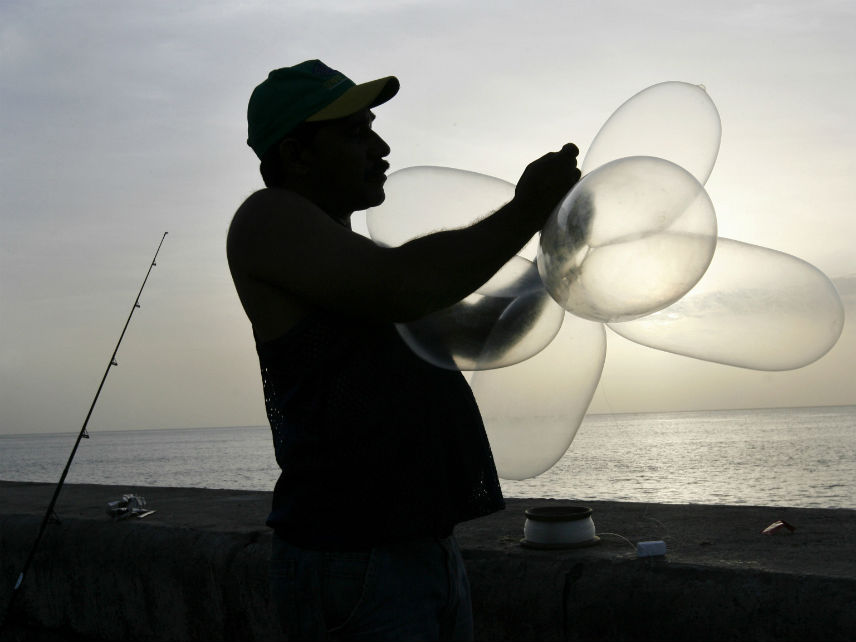Sanctions Lead to Creative Condoms for a Communist Cuba
Condoms have become a multi-purpose tool in a country that does not have much access to resources.

In a communist country like Cuba, you have to be innovative to make up for the absence of goods more widely available in open markets.
According to a Reuters report, latex condoms are one such vector for problem solving. Cubans have found uses for them that include fishing, fermenting wine, and tying up hair.
Last year, the Associated Press interviewed Orestes Estevez, a Cuban winemaker who used condoms to ferment his fruit wines. "Putting a condom on a bottle is just like with a man," he told AP. "It stands up, the wine is ready, and then the process is completed."
Reuters goes on to explain that a box of three latex condoms are as cheap as one Cuban peso, the equivalent to four cents. This is especially significant when considering that the average state wage on the island is $30 a month. The product is cheap because of a mix of government subsidies and a heightened focus on sexual health. As for how condoms became an acceptable replacement for products such as hair ties, Cuban consumers can look to a centralized economy and foreign economic interventions such as U.S. sanctions and embargoes, all of which have led to desolate markets and expensive imports.
A number of American politicians have spoken out against the American government's role in this. Before Sen. Jeff Flake (R–Ariz.) accompanied former President Barack Obama on a historical trip to the island in 2016, Flake told Reason that "It always bothered me that as a Republican we preach the gospel of contact and commerce and trade and travel, yet with Cuba we turn around and say, 'No, it's not going to work there.'" Flake also observed that economic interventions have affected American citizens by limiting their freedom to travel to the island. In 2017, Sen. Rand Paul (R–Ky.) argued in Reason that the embargo placed on Cuba over half a century ago has done "absolutely nothing" to remove figures like the now-deceased Fidel Castro from power. In fact, Paul said the embargoes may have indirectly kept him in power longer.
Bonus link: John Stossel encourages President Trump to embrace free trade with Cuba.


Show Comments (14)